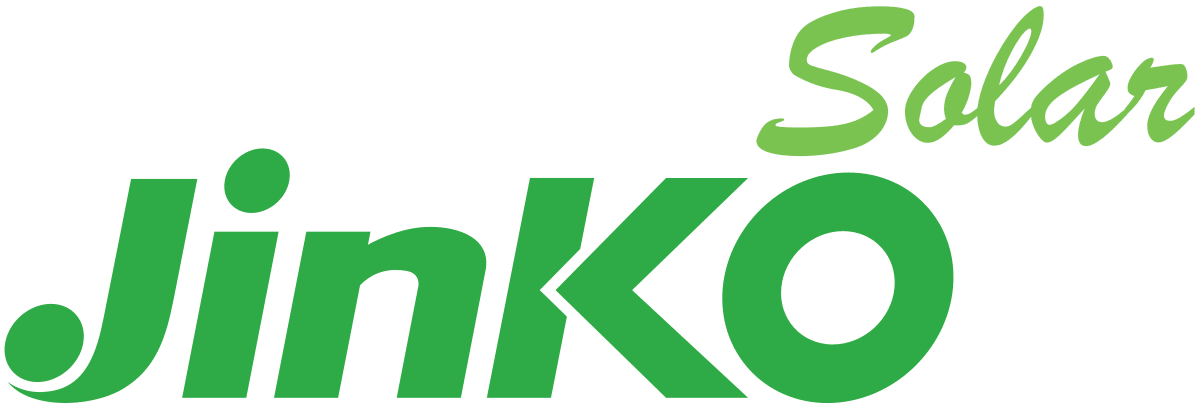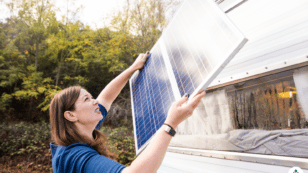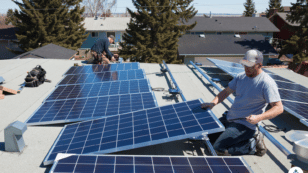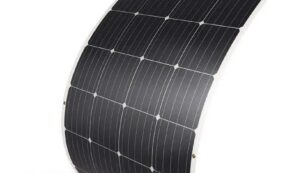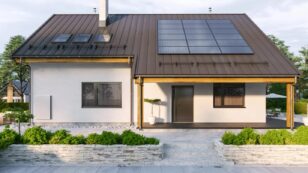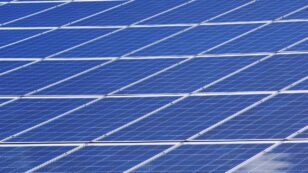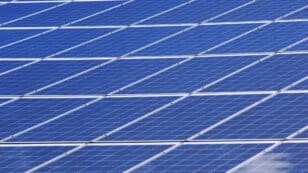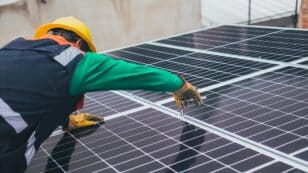
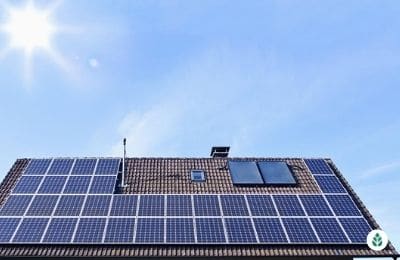
Top 5 Most Efficient Solar Panels (2024 Reviews)
In this EcoWatch guide on the most efficient solar panels, you’ll learn:
- The difference between solar cell and solar panel efficiency
- Why is solar panel efficiency important?
- Common (but surprising) factors contributing to inefficient solar panels
This guide has helped many homeowners learn about solar panel efficiency and can help you make the right choice when deciding on the most efficient option. Let’s get started!
Each product and or company featured here has been independently selected by the writer. You can learn more about our review methodology here. If you make a purchase using the links included, we may earn commission.
What Are the Most Efficient Solar Panels?
A solar panel’s efficiency rating tells you how much of the solar energy that hits your panels will be converted into usable electricity for your home. It’s not the only measure of a high-quality solar (PV) panel, but it’s one of the most important ones. Higher efficiency ratings mean your panels will generate more power in all conditions—full sun, partial sun and cloudy weather—which directly correlates to greater energy savings for you.
We’ve looked at every top-rated major solar panel brand and the panel models offered and have determined that the below panel brands have the highest efficiency ratings in the solar industry.
- Maxeon (formerly SunPower): Most Efficient Panels
- LONGi Solar: Best Value
- Jinko Solar: Best Budget Brand
- Canadian Solar: Best Product Selection
- REC: Best Availability
Not all of the panels manufactured by these companies have the same efficiency rating, and some models fluctuate by a few percentage points. Below are the specific models from each manufacturer we found to be the most efficient. Note that there’s a drop-down menu available for each of these brands in case you’re looking for more information.

Sunpower

Average cost
Pros
- Most efficient panels available for homes
- Cradle to Cradle certified sustainable
- Industry-leading warranty coverage
Cons
- Expensive
LONGi Solar
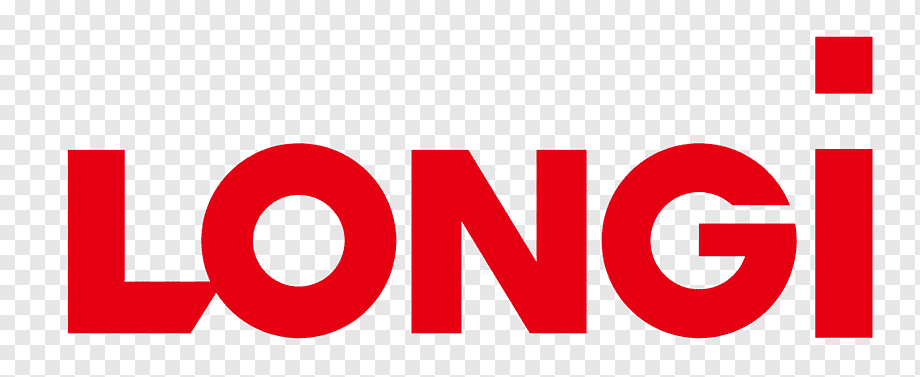
Average cost
Pros
- Highly efficient solar panels
- Consistent power production
- Sleek appearance
Cons
- High cost
- Underwhelming warranty
Founded in 2000, LONGi is the largest solar panel manufacturer in the world, with a market capitalization nearly triple that of any competitor. Not only is LONGi one of the most successful manufacturers, but it also manages to provide outstanding value at below-average costs. The Hi-Mo 6 Scientist panels from LONGi deliver top-of-the-line efficiency ratings, and although the warranty isn’t quite as good as other panels, the upfront savings you’ll see more than make up for it, in our opinion.
What We Like
The Hi-Mo 6 panels reach efficiencies of 22.6%, nearly matching the industry leader. That means LONGi solar panels will help bring down your energy bills more than most other brands on a monthly and annual basis. Best of all, LONGi panels cost around $2.40 per watt, which is well below what other brands at this efficiency rating and quality cost.
LONGi panels have a low power tolerance, which is a measurement of expected power production differential in real-world situations. The industry average is -5%/+5%, and the Hi-Mo 6 Scientist model boasts a -3%/+3% differential. That means you’ll see a lower production rate fluctuation, ultimately helping to maximize your energy savings over time.
What We Don’t Like
LONGi panels don’t have the best warranty coverage, which is really the only major downside to the brand. The Hi-Mo 6 Scientist panels come with only a 15-year warranty for manufacturer defects, whereas the industry standard is 25 years. The power production guarantee does meet the standard 25-year coverage, although the expected remaining efficiency rating after that time (88.9%) is a bit lower than some other brands that guarantee 92%.
Solar Panel Options
LONGi’s most recent innovation, the Hi-Mo 6 line of panels, is phasing out the Hi-Mo 4 and Hi-Mo 5 product lines. There are four different options within the new Hi-Mo 6 lineup.
| Efficiency Rating | Panel Type | Estimated Cost Per Watt | Power | Warranty | Best For | |
| Hi-Mo 6 Scientist | Up to 22.6% | Monocrystalline | $2.40 | 580W to 590W | 15 to 25 years | Maximum efficiency |
| Hi-Mo 6 Explorer | Up to 22.1% | Monocrystalline | $2.40 | 560W to 570W | 15 to 25 years | Extreme climates |
| Hi-Mo 6 Guardian | N/A | Monocrystalline | $2.40 | N/A | 15 to 25 years | Self-optimization |
| Hi-Mo 6 Artist | N/A | Monocrystalline | $2.40 | N/A | 15 to 25 years | Unique appearance |
Warranty Information
Of the manufacturers with the highest panel efficiencies, LONGi is the least impressive. It covers manufacturer defects for 15 years compared to the 25-year standard. The power production warranty—which helps ensure you continue to save money on your electric bills—is for the industry standard of 25 years. However, it guarantees 88.9% efficiency at the end of the warranty term, whereas other companies guarantee 90% or more.
Installation Options
Unlike Maxeon, LONGi doesn’t have any specific partnerships, so its products are widely available and can be installed by any solar contractor that chooses to offer them.
Facts and Figures: LONGi Solar
| EcoWatch Rating |
|---|
| Average Cost ($-$$$$$) |
| Solar Services |
| 4.5 |
| $$$$ |
| Solar Panels |
Jinko Solar
Jinko Solar is another giant in the industry that provides panels across the globe. It’s best known as a budget brand, although its panels are still considered to be tier-one. We recommend Jinko panels to solar customers who want to keep upfront installation costs down but still get a high-quality brand with an above-average efficiency rating. Much like LONGi, Jinko’s panel warranties aren’t the best.
What We Like
Jinko Solar’s size makes its products widely available throughout the U.S. Without any specific partnerships, its panels are available from hundreds of installers in every state. The average cost per watt for Jinko panels is around $2.25, making it the most affordable high-efficiency solar panel brand on our list.
Despite the low cost, Jinko panels are ranked quite high by PV Evolution Labs (PVEL), suggesting that the panels outperform many other brands in a variety of conditions. With a peak efficiency rating of 22.6%, Jinko’s panels are likely to boost your energy savings over less efficient options, all while saving you money on your installation.
What We Don’t Like
The biggest downside to Jinko Solar’s panels is the warranty coverage. Its performance warranty lasts the standard 25 years, but the degradation in the first year (2.5%) is higher than the industry average of around 2%. Plus, the remaining efficiency at the end of the term is just 80.7%, compared to the typical ~90% in other high-quality brands. The manufacturer’s warranty of 12 years also pales in comparison to the standard 25 years.
Solar Panel Options
Jinko currently manufactures three panel models in its Eagle lineup for U.S. customers: the Eagle G5, the Eagle G4 and the Eagle Continental. There are two additional product lines for other countries—Cheetah and Tiger—which are expected to come to the U.S. after testing.
| Efficiency Rating | Panel Type | Estimated Cost Per Watt | Power | Warranty | Best For | |
| Eagle G5 | Up to 21.13% | Monocrystalline | $2.40 | 525W to 545W | 12 to 25 years | Efficiency for U.S. Customers |
| Eagle G4 | Up to 20.96% | Monocrystalline | $2.40 | 380W to 400W | 12 to 25 years | Value |
| Eagle Continental | Up to 19.88% | Monocrystalline | $2.25 | 380W to 400W | 12 to 25 years | Budget Panels in U.S. |
| Tiger Neo | Up to 22.6% | Monocrystalline | $2.40 | 475W to 635W | 12 to 25 years | High Efficiency Rating |
| Cheetah | Up to 20.16% | Monocrystalline | $2.25 | 355W to 410W | 12 to 25 years | Budget Panels Outside of U.S. |
Warranty Information
Jinko Solar has decent warranty coverage, but it’s not ideal compared to what industry leaders like Maxeon are able to offer. Jinko provides just a 12-year warranty for the equipment and manufacturer defects, which is less than half of the industry average. The power performance warranty lasts for 25 years, which is average, although the solar degradation in that time — close to 20% — is double what you’d see from higher-quality panels.
Installation Options
As one of the world’s largest manufacturers, Jinko doesn’t have any specific partnerships with installers. Any solar panel installation company that chooses to install Jinko panels can do so without any specific certification. That means you should have a wide selection of installers available to you if you specifically want Jinko panels.
Facts and Figures: Jinko Solar
| EcoWatch Rating |
|---|
| Average Cost ($-$$$$$) |
| 4 |
| $$$ |

Canadian Solar
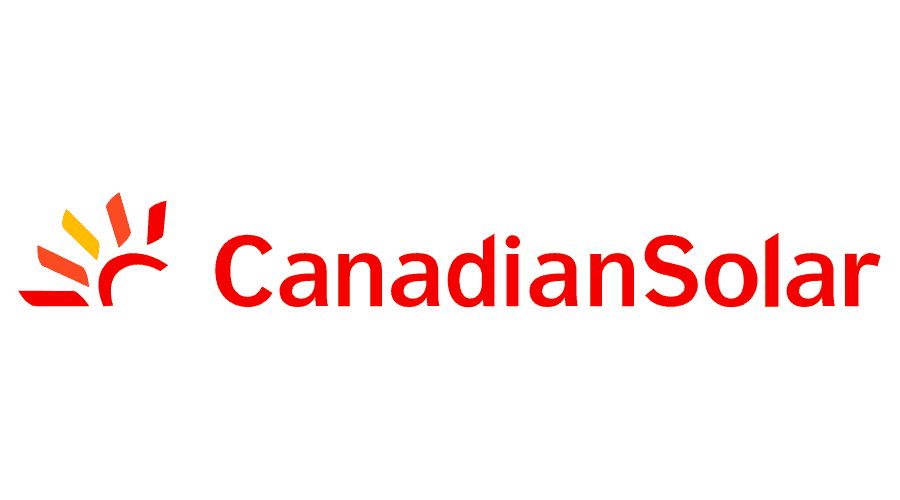
Average cost
Pros
- High-performing panels
- Competitively priced
- Many panel types available
Cons
- Not the best choice for small roofs
- Don't perform the best in high temperatures
- Slightly short warranty coverage
Canadian Solar is a large international manufacturer that has been in business since 2001, so it has more than 20 years of experience. Its products provide an outstanding blend of quality and affordability, although the average price per watt is a little above average. We’d recommend Canadian Solar panels to homeowners looking to balance power output with affordability.
What We Like
Canadian Solar not only manufactures one of the highest-efficiency panel models available, but it also provides budget options—specifically, polycrystalline solar panels with a lower efficiency. This helps keep solar as accessible as possible, which we love to see from any manufacturer.
The warranty coverage available for newer models is all in line with the industry standard in terms of length, so you should get decades of useful life and energy savings out of the company’s products.
Finally, Canadian Solar offers more than just panels. It serves other manufacturers with raw materials that help speed up the production and increase quality of off-brand products, as well as keep industry costs down. Overall, the company has a positive impact on the solar space.
What We Don’t Like
The warranty coverage for everything other than the new HiHero product lineup isn’t up to the industry standards. The HiHero panels come with an above-average 30-year performance warranty plus the typical 25 years of coverage for things like manufacturer defects. The efficiency remaining after the warranty term is below average, though, at 84.8%. Most other models only come with a 15-year equipment warranty, but they do have the standard 25-year coverage for equipment issues.
Solar Panel Options
Canadian Solar has a pretty impressive lineup of panels that fall within two product lines: the HiKu line and the HiHero line.
| Efficiency Rating | Panel Type | Estimated Cost Per Watt | Power | Warranty | Best For | |
| HiKu | Up to 19.4% | Polycrystalline or Monocrystalline | $2.70 | 360W to 465W | 12 to 25 years | Affordability |
| BiHiKu | Up to 20.1% | Polycrystalline or Monocrystalline | $2.70 | 435W to 460W | 12 to 25 years | Affordability |
| HiHero | Up to 22.5% | Heterojunction (HJT) | $3.20 | 420W to 445W | 25 to 30 years | High Efficiency |
| Hiku 6 | Up to 21.3% | Monocrystalline | $2.90 | 445W to 555W | 12 to 25 years | Balancing Efficiency and Price |
| BiHiKu 6 | Up to 21.4% | Monocrystalline | $2.90 | 520W to 550W | 12 to 25 years | Balancing Efficiency and Price |
| HiKu 7 | Up to 21.6% | Monocrystalline | $3.00 | 640W to 670W | 12 to 25 years | Small Roofs |
| BiHiKu 7 | Up to 21.4% | Monocrystalline | $2.90 | 640W to 665W | 12 to 25 years | Small Roofs |
| TOPHiKu 6 | Up to 21.4% | TOPCon Cell | $2.90 | 420W to 570W | 12 to 25 years | Balancing Efficiency and Price |
| TOPBiHiKu 6 | Up to 21.4% | TOPCon Cell | $2.90 | 555W to 575W | 12 to 25 years | Balancing Efficiency and Price |
| TOPBiHiKu 7 | Up to 21.4% | TOPCon Cell | $2.90 | 615W to 695W | 12 to 30 years | Small Roofs |
Warranty Information
If you purchase the highest-efficiency panels from Canadian Solar—the HiHero model—you get a standard 25-year product warranty plus a 30-year power production guarantee. The degradation is more significant in these panels than average at this price point, but the warranty length is still better than most companies offer.
Other models come with a 12-year product warranty, which is less than half of what most other manufacturers provide. Most come with a 25-year production warranty—again with a faster rate of efficiency degradation than average—except for the TOPBiHiKu 7 model, which gets a 30-year efficiency warranty.
Installation Options
Canadian Solar doesn’t have any specific partnerships with U.S. installers, so its products are available in most areas from a massive selection of contractors. Plus, Canadian Solar is one of the few manufacturers with a vertical product line, which means its high-efficiency solar cells and other products make their way into off-brand panels. You could, therefore, end up with Canadian Solar technology even if you don’t specifically buy panels from the company.
Facts and Figures: Canadian Solar
| EcoWatch Rating |
|---|
| Average Cost ($-$$$$$) |
| Solar Services |
| 4 |
| $$ |
| Solar Panels |

REC Solar
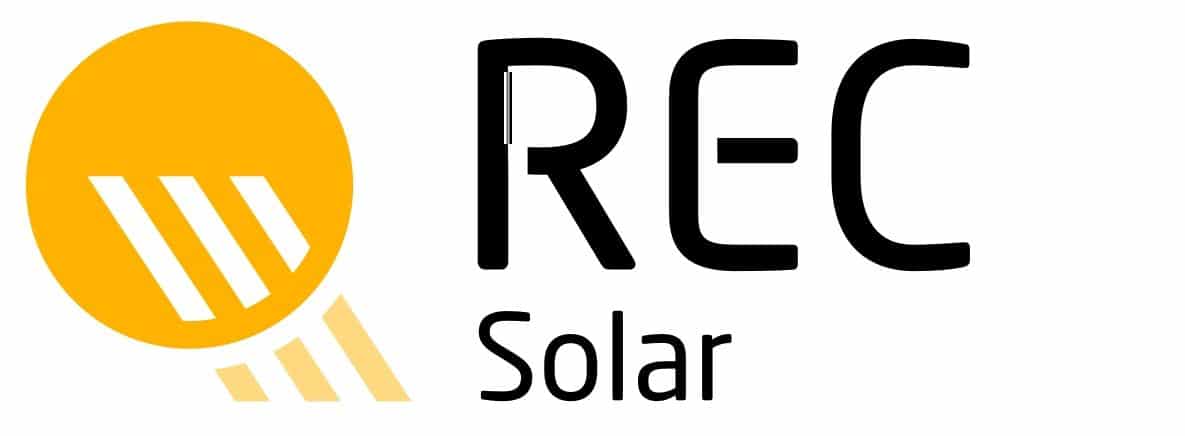
Average cost
Pros
- Highly efficient
- Durable panels
- Rigorous testing standards
- Work well in high temperatures
Cons
- Can be slightly expensive
REC is a solar manufacturer based in Norway with a massive presence throughout the U.S. By the company’s own statistics, it is the largest provider of photovoltaic (PV) modules to the United States, which is, in large part, why we think REC has some of the best solar panel availability in the country. Not only are its products widely available, but the company maintains above-average efficiency ratings across all of its products. We recommend REC panels to homeowners who want easily accessible options that will help maximize energy savings over time.
What We Like
REC’s performance specs and availability make it a go-to option for countless installers in the U.S., which means its products are available virtually anywhere you live. The company uses heterojunction (HJT) technology to keep panel efficiency high, which means REC panels save you more on energy bills than the average PV equipment.
REC’s warranty coverage is also quite good, with a 25-year power production warranty guaranteeing 92% of the original efficiency at the end of the warranty term for most panel models. That’s in line with other top performers in the industry.
REC panels also have a great temperature coefficient, losing just 0.26% efficiency per degree (C) above 25 degrees (77 degrees in Fahrenheit). That means REC panels are a great option for maintaining those high efficiency ratings and energy savings even in more extreme climates.
What We Don’t Like
The only real downside to REC panels is that they’re a bit on the expensive side. The high-end models cost around $3.20 per watt, before any solar tax credit is considered. The cheaper options with less impressive specs average as low as $2.50 per watt, though, so the company maintains options that will be suitable for most solar customers.
Read our full review of REC solar panels for more information.
Solar Panel Options
REC has five primary product lines available that do a good job of providing something for everyone. This is yet another reason why we think REC is one of the most widely accessible brands in the industry.
| Efficiency Rating | Panel Type | Estimated Cost Per Watt | Power | Warranty | Best For | |
| Alpha Pure-R | Up to 22.3% | Heterojunction (HJT) | $3.20 | 410W to 430W | 25 years | High Efficiency |
| Alpha Pure | Up to 21.6% | Heterojunction (HJT) | $3.20 | 385W to 410W | 25 years | Warranty Coverage |
| N-Peak 3 | Up to 20.3% | Monocrystalline | $2.80 | 390W to 400W | 20 to 25 years | Balancing Efficiency and Cost |
| N-Peak 2 | Up to 20.3% | Monocrystalline | $2.80 | 360W to 375W | 20 to 25 years | Balancing Efficiency and Cost |
| TwinPeak 4 | Up to 20.5% | Monocrystalline | $2.50 | 360W to 375W | 20 to 25 years | Affordability |
Warranty Information
For the top-of-the-line products, including the Alpha Pure and Alpha Pure-R series, REC provides a 25-year warranty for the equipment, production and labor in case a panel needs to be serviced. All other products include a 20-year equipment warranty, which is just below the industry average, and a 25-year production warranty, which is right in line with the average term.
However, the company guarantees 92% efficiency will remain after the efficiency warranty term, which is better than most companies and in line with the best options in the solar space.
Installation Options
The best part about REC, in our opinion, is that it’s one of the top producers of panels in the U.S. Without being beholden to a single installer, just about any solar contractor can install REC panels, meaning the products should be available regardless of where you live.
REC does offer a superior warranty if you have your panels installed by a REC-certified installer, so keep that in mind if you know you do want REC panels.
Facts and Figures: REC Solar
| EcoWatch Rating |
|---|
| Average Cost ($-$$$$$) |
| Solar Services |
| 4 |
| $$$ |
| Solar Panels |
What Should You Look for When Choosing High-Efficiency Solar Panels?
Aside from your installer making sure your solar system is sized properly for your home and energy consumption, choosing high-efficiency panels is the best way to maximize your solar savings and ensure you don’t end up paying for a solar array and a high monthly electric bill.
However, it’s not as simple as picking the panel with the highest efficiency rating. There are a few other things to consider that could change which option is actually best for your particular home. The infographic below includes a quick look at some of the most crucial things to think about that contribute to how well solar panels work in real-world conditions as opposed to standard testing conditions in a lab.
Compare the Top-Rated High-Efficiency Solar Panels
Overall, our top recommendations if you’re looking for high-efficiency panels are the Maxeon 6 panels from Maxeon and the Alpha Pure-R panels from REC. You might notice that our second pick actually has the fifth-highest efficiency, and that’s because we considered other crucial factors like degradation rate warranty coverage.
The table below includes some additional information about these two panel models to help you decide which of these is the right option for your solar project. We’ll also include info for our top panel recommendation from the other providers on our list for comparison.
| Efficiency Rating | Power Output | Temperature Coefficient (per degree C over 25) | Power Tolerance | First-year Degradation | Subsequent-year Degradation | Efficiency After 25 Years | Total Warranty Term (for Efficiency) | |
| Maxeon 6 | Up to 22.8% | 410W to 440W | -0.29% | 0/+5% | 2% | 0.25% | 92% | 40 years |
| LONGi Hi-Mo 6 Scientist | Up to 22.6% | 580W to 590W | -0.29% | 0/+5% | 1.5% | 0.5% | 86.5% | 25 years |
| Jinko Solar Tiger NEO | Up to 22.6% | 475W to 635W | -0.29% | 0/+3% | 1% | 0.4% | 89.4% | 30 years |
| Canadian Solar HiHero | Up to 22.5% | 420W to 445W | -0.26% | 0/+10% | 1% | 0.55% | 85.8% | 30 years |
| REC Alpha Pure-R | Up to 22.3% | 410W to 430W | -0.26% | 0/+5% | 2% | 0.25% | 92% | 25 years |
Compare the Top-Rated High-Efficiency Solar Panel Manufacturers
As far as the best manufacturers overall for high-efficiency panels, we’d have to choose Maxeon again as our number one recommendation, although our second spot goes to LONGi. All of Maxeon’s panel models come with superior warranty coverage, reliability and durability, and LONGi is a great low-cost option that still brings plenty of value for the money.
The table below includes a side-by-side look at the product lines as a whole from these providers and the others that topped our list. We’ll include scoring for each based on our methodology, which will be explained in greater depth later in this article.
| Efficiency Score (Out of 25) | Durability Score (Out of 20) | Warranty Score (Out of 20) | Price Point Score (Out of 20) | Temperature Coefficient (Out of 10) | Sustainability Score (Out of 2.5) | Appearance Score (Out of 2.5) | Our Overall Rating (Out of 100) | |
| Maxeon | 25.0 | 19.0 | 20.0 | 6.0 | 10.0 | 1.9 | 2.25 | 84.1 |
| LONGi | 25.0 | 11.5 | 11.0 | 20.0 | 10.0 | 1.25 | 1.25 | 80.0 |
| Jinko Solar | 22.5 | 7.5 | 11.0 | 20.0 | 10.0 | 0.625 | 0 | 71.6 |
| Canadian Solar | 20.5 | 7.5 | 16.0 | 10.0 | 7.0 | 1.9 | 1.5 | 64.4 |
| REC | 25.0 | 13.0 | 16.0 | 10.0 | 7.0 | 1.9 | 1.8 | 74.6 |
Why Is Solar Panel Efficiency Important?
It would be unfair to equate the most efficient solar panels as being the best, since a number of other factors — namely durability, cost, warranty and power — can have a large impact on overall quality. However, in residential solar, efficiency is typically one of the more important considerations. Here’s why.
Quicker Payback Period
The more efficient your solar power system, the higher your power output will be, and the more quickly you’ll recoup your initial investment. The cost of solar panels can be intimidating, but efficient panels will help slash a larger portion of your electricity bills, accelerating your solar payback period.
Something else to keep in mind is that the more efficient your solar panels are, the lower number of solar panels and inverters you’ll need to achieve your home energy goals.
Better for Limited Space
Many residential solar energy projects are confined in terms of space available for solar panels. Some might see their roofs and think there’s plenty of space, but zoning laws and regulations often require spaces between panels and gaps between the arrays and the sides of the roof.
For homes with less roof space, high-efficiency panels allow you to do more with less. In commercial solar installations where you have more space to work with, efficiency won’t be as big a factor.
Doing More With Less
In addition to working with limited space, requiring fewer solar panels lowers the impact of your solar project itself. As Dr. Yifeng Chen, head of efficiency research and development at Trina Solar, says, “ improving module efficiency is a key to helping customers save land, labor, cables, etc.”
The highest-efficiency solar panels require fewer materials, shipping costs and waste. It may not seem like much to shave off one or two panels from your solar array, but seeing as the U.S. averages some 3 million solar installations per quarter, the impact can add up. Check out this video exploring solar panel efficiency:
What Determines Solar Panel Efficiency?
Two main factors determine solar panel efficiency: the makeup of the photovoltaic (PV) cell , and the structure of the panel. You might wonder what differentiates the two.
Solar Cell Efficiency
A solar cell is the smallest unit within a solar panel, usually composed of silicon atoms. The photovoltaic effect — which is the process by which sunlight is turned into electricity — happens in the solar cells themselves, and solar panels join together multiple cells to produce higher amounts of power and allow that power to flow through a home.
The most efficient types of solar panels are usually monocrystalline (rather than polycrystalline panels or thin-film). In this type of panel, the solar cell is cut from one solid monocrystalline silicon crystal.
This leads to fewer imperfections in the cell, making them more capable of absorbing sunlight and, thus, more efficient. It’s possible you’ve heard about N-type or P-type solar cells in your research as well.
This won’t matter very much to the average customer, but if you’re curious, these solar cell types differ in their chemistry due to the number of electrons they carry. N-type cells are negatively charged (via phosphorus), while P-type cells are positively charged (via boron). Multi-junction solar cells exist, too, made with both P- and N-type materials.
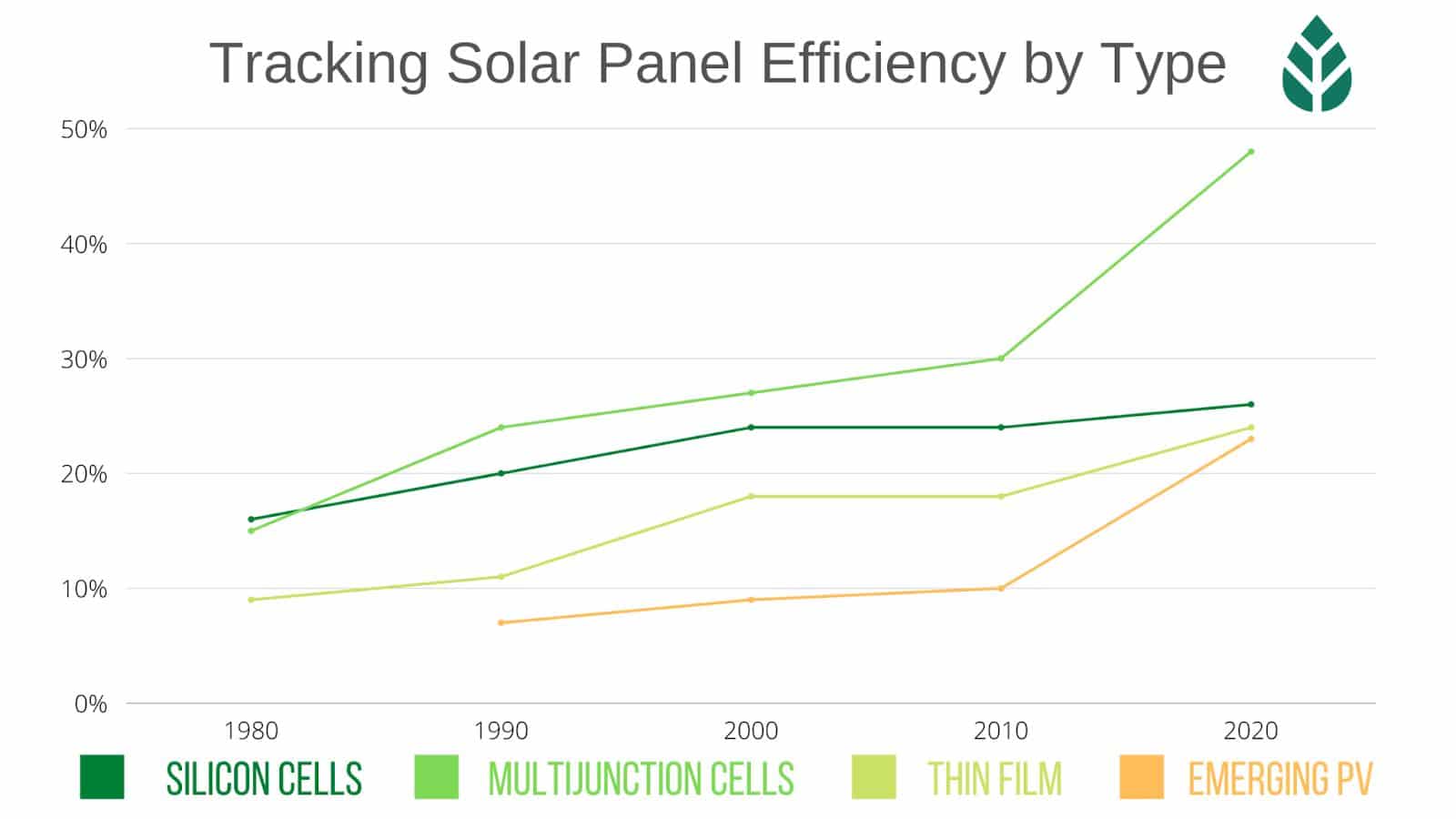
Solar Panel Efficiency
Overall solar panel efficiency has more to do with the structure of the panel itself. Even if you have the most efficient solar cells available, the next step is to gather those electrons and direct a current in a specific direction.
A solar panel has to be as smoothly interconnected as possible, so as not to lose any energy in this part of the process. Temperature, cell type and design will have a large effect on overall efficiency in this context.
At the risk of getting too technical, here are a number of aspects of solar panels that factor into efficiency.
- Wavelength: The spectrum of light that a solar cell is able to absorb can vary. Most modern solar cell technology is only capable of capturing visible light, excluding other wavelengths like infrared and UV rays. In general, the wider the spectrum of light that can be captured, the more efficient the cell will be. Some researchers are currently focusing on solar cells capable of capturing infrared rays, which would dramatically increase efficiency.
- Temperature: High temperatures and extreme weather conditions can put a lot of stress on a solar panel. In fact, solar panels are actually more effective in colder conditions when they can work without overheating. Panels that are durable, and that can withstand high temperatures, will have greater overall efficiency and lifespan.
- Reflection: Solar panels need a protective coating on them to ensure their longevity. What’s challenging, however, is that this protective coating shouldn’t reflect any of the potential energy the solar cells are trying to capture. Higher-efficiency panels will have high-quality protective coatings that reflect the least light possible, increasing overall energy production.
Environmental Factors Affecting Solar Panel Efficiency
While solar panel efficiency is determined in large part by solar cell technology and the construction of the panels themselves, there are also a number of other real-world contributors to the overall amount of power your system will be able to generate.
- Climate and Latitude: Climate and latitude have a large impact on the overall efficiency of your solar energy system. The closer you live to the equator, the more direct sunlight you’ll receive on an annual basis. Climate factors in as well. If you live somewhere rainy or often covered by clouds, you won’t get as much production out of your system.
- Solar Panel Orientation: Similar to the role of latitude, your panel orientation will affect efficiency. If you live in the northern hemisphere, the best direction for your solar panels to face is south (and north if you’re in the southern hemisphere), as this is how they will get the most direct sunlight. If your roof isn’t at a great angle for solar, your system will be less efficient.
- Dirt, Dust or Grime Buildup: This factor is particularly unappreciated — you might be surprised how much production you lose when you don’t clean your panels. Fortunately, it’s pretty easy to give your panels the routine maintenance they deserve to keep your home powered on clean energy.
Bottom Line: What’s the Best High-Efficiency Solar Panel for You?
Overall, we believe the Maxeon 6 panels from Maxeon are the best high-efficiency panels you can buy for residential solar panel projects. Maxeon has more than 30 years of experience in solar technology innovation, it has some of the best warranty coverage in the entire industry and it provides the highest efficiency rating and some of the most impressive performance specifications available. Maxeon panels are expensive, but we think they’re well worth the investment and will end up paying for themselves.
With that being said, we recommend you get multiple quotes from installers in your area to compare the proposed solar energy system specifications and the cost. You should also consider things like your climate, your monthly energy consumption and the size of your roof before deciding which panel is ideal for your property.
Additionally, the installers in your area may not carry the options we’ve mentioned above. Some other honorable mentions for maximizing your solar power production include panels from Panasonic, Trina Solar, Silfab and Q Cells panels. These companies all have above-average efficiency ratings. You can click the buttons below to get personalized estimates for your solar project.
Methodology: How We Reviewed High-Efficiency Solar Panels
Of course, in a list of the panels with the highest efficiency, we’ve listed the panels in order of their raw efficiency rating. However, we use a more complicated system to get an overall product ranking, which leads to discrepancies like REC—with the fifth-highest efficiency—ranking second overall. We’ll explain our criteria below for transparency.
- Efficiency (25%): One of the most crucial things we considered was the peak efficiency rating for the panels we reviewed. In most cases, a high efficiency rating means greater savings over time for you. That’s not always the case, but greater efficiency does mean higher energy production, at least right after your installation is completed. Plus, a high starting point leaves more room for degradation before a panel becomes less beneficial than another option with a lower starting efficiency.
- Durability (20%): The degradation rate of a panel’s efficiency is what we believe is the next most crucial thing to consider when comparing the efficiency of solar panels. Panels that lose efficiency more rapidly could end up generating less solar power than panels that start at a lower efficiency but lose less over time. A perfect example of this is the Tiger Neo panel from Jinko Solar. It maintains just 80.7% of its efficiency over 25 years. Year one, the Tiger Neo outperforms the REC Alpha Pure-R—22.6% as opposed to 22.3%. At year 25, though, the Tiger Neo sits at just 18.14%, while the REC panel would still be at 20.29%. We also consider the panel’s ability to withstand extreme weather conditions.
- Warranty coverage (20%): Warranty coverage is a huge deal when you’re spending $10,000 to $20,000 or more on your PV equipment. Panel manufacturers that have longer and more appealing warranty coverage are more likely to provide superior service, which could end up saving you money on repairs or maintenance. As such, we rank companies with better warranties and greater panel lifespans higher.
- Cost Per Watt (20%): Next, we consider the average price per watt of different panels. Unfortunately, you’ll usually have to pay a premium for high-efficiency panels, which may or may not be worth the money over time. Cost isn’t the primary driving force, but we rank panels lower if they are prohibitively expensive for some homeowners.
- Temperature coefficient (10%): The temperature coefficient of a panel is important for solar customers who live in hot climates. All panels lose efficiency as temperature increases, but a panel with a lower starting efficiency could end up being better overall if you live in a particularly warm area and it has a low efficiency loss to high temperature.
- Sustainability (2.5%): The EcoWatch team always focuses on sustainability, so we rank companies higher if they use recycled materials to manufacture their panels and have recycling programs for panels that have reached the end of their life. We also look at a company’s history in terms of social sustainability, including the quality of life for employees.
- Appearance (2.5%): Panels that are all black and don’t have visible grid lines tend to be more desirable. We rank companies and panels slightly higher if they meet both of these criteria.
FAQ: Most Efficient Solar Panels
Of the different types of panels—including thin-film or flexible solar panels, polycrystalline (poly) panels and monocrystalline (mono) panels—monocrystalline silicon panels have the highest efficiency rating. They are designed using a single silicon crystal, which helps reduce loss of energy inside the cell.
It’s worth noting that PERC (Passivated Emitter and Rear Contact) technology has improved monocrystalline solar cells over the past few decades, so, technically, monocrystalline PERC is the most efficient solar cell option.
There is no solar panel technology that has been able to reach efficiency levels of 100% or anywhere near it. The highest efficiency rating for a panel is 22.8% in real-world conditions, meaning more than three-quarters of the solar energy hitting the panel will not contribute to the amount of electricity produced.
The most efficient solar panel available on the market today for residential use is the Maxeon 6 panel from Maxeon (formerly SunPower). The Maxeon 6 panel has an efficiency rating of 22.8% and manages a below-average loss of efficiency to high temperatures and a low degradation rate—just 8% over 25 years and 11.75% over 40 years.
With that being said, the National Renewable Energy Laboratory (NREL) has produced solar modules that, in laboratory conditions, exhibit solar cell efficiency ratings of just under 50%. If this solar cell technology can be applied to residential solar panel systems, homes could use more than 100% more of the sun’s energy than they do now.
The answer to this question depends on many factors, including the amount of sunlight they get, sun irradiance or sunlight intensity, the efficiency rating of the panel, the climate, the temperature coefficient and much more. You can usually check the output of power of a particular panel, expressed in watts, to get a good idea of the energy it will generate.
Related Solar Energy Guides
- How Solar Panels Work: Solar Power Science Explained
- Cheap Solar Panels: Your Ultimate Guide to the Most Affordable Solar Panels
- Are ‘Free Solar Panels’ Really Free [Guide]
- Thin-Film Solar Panels: What You Need to Know
- Buyer’s Guide: Best Solar-Powered AC Units of 2022
- Best 300-Watt Solar Panels: Cost, Specs & Everything You Need to Know
- Guide To Bifacial Solar Panels

 233k
233k  41k
41k  Subscribe
Subscribe 
